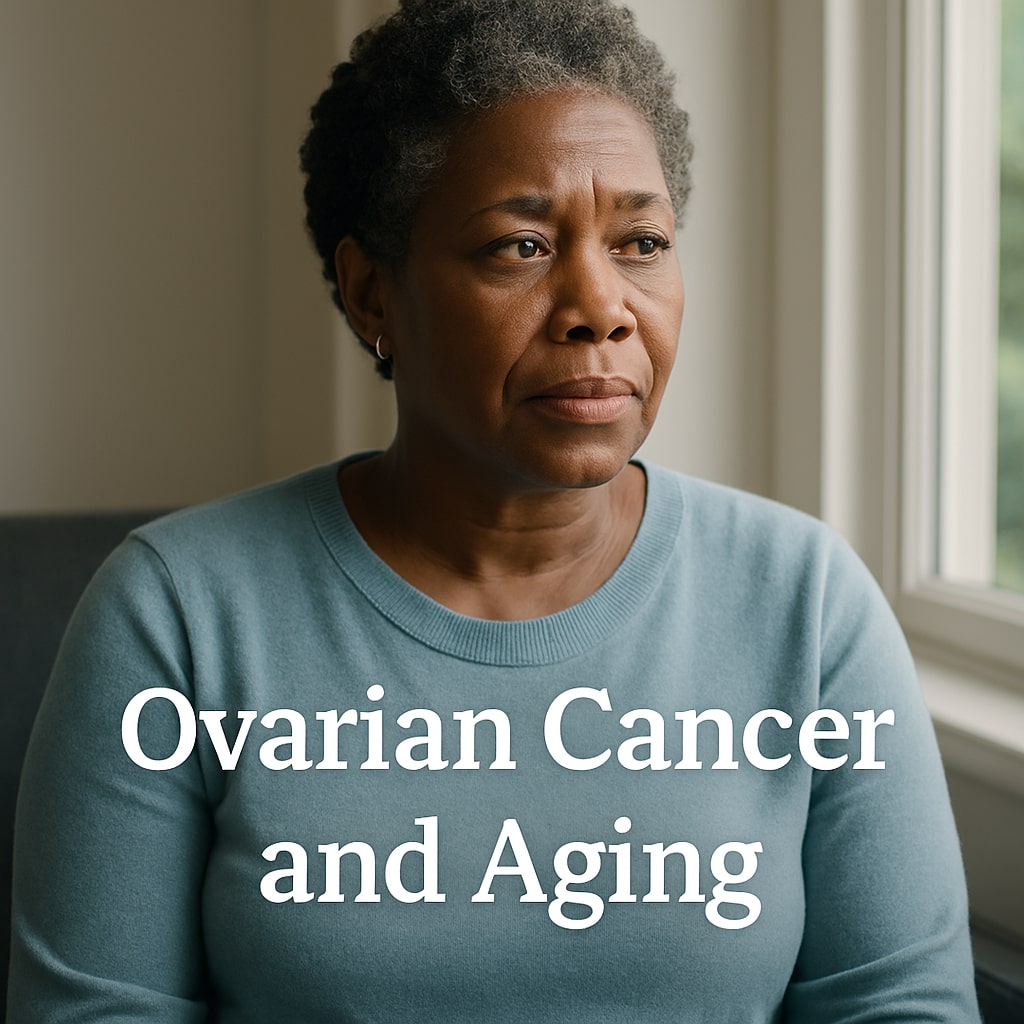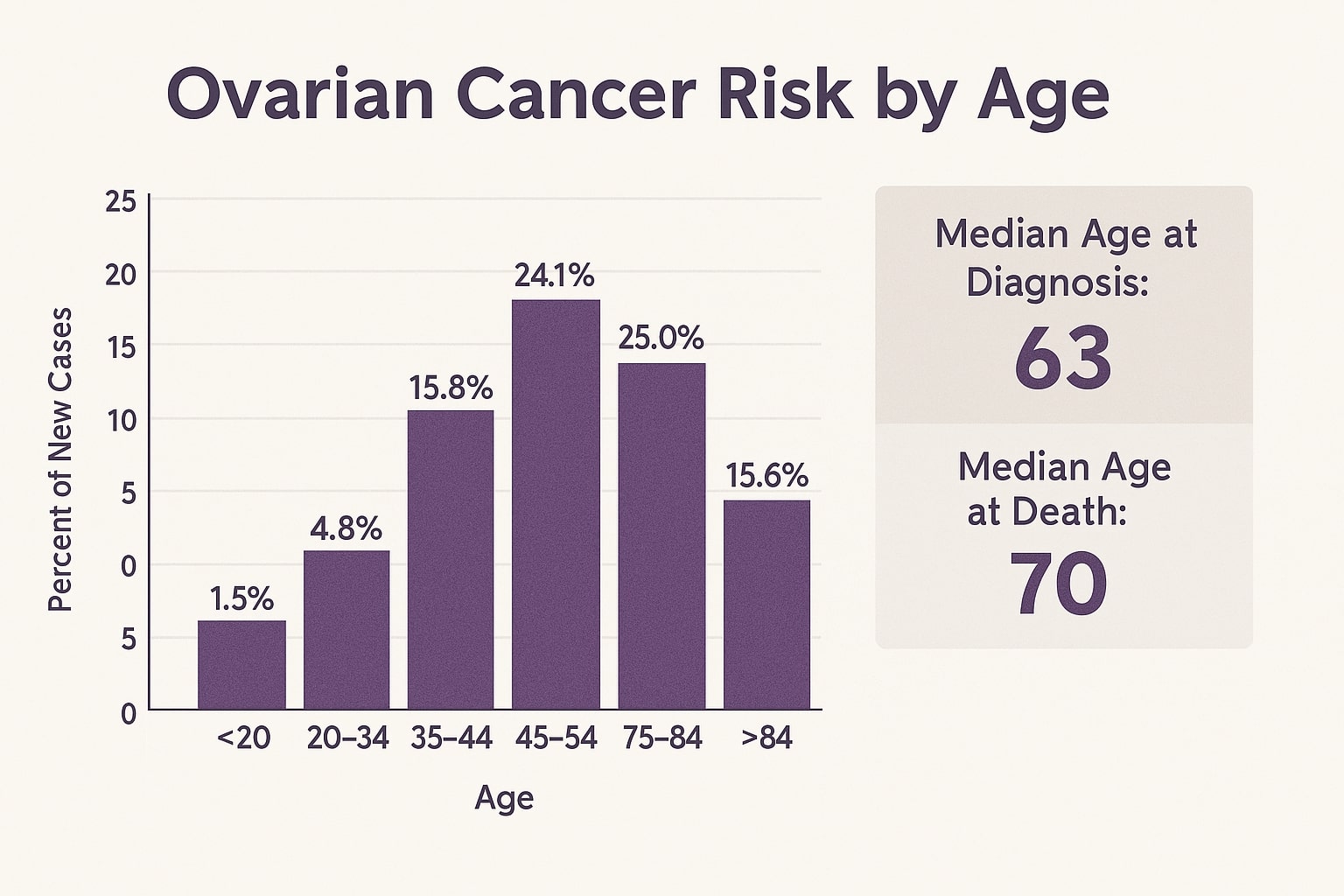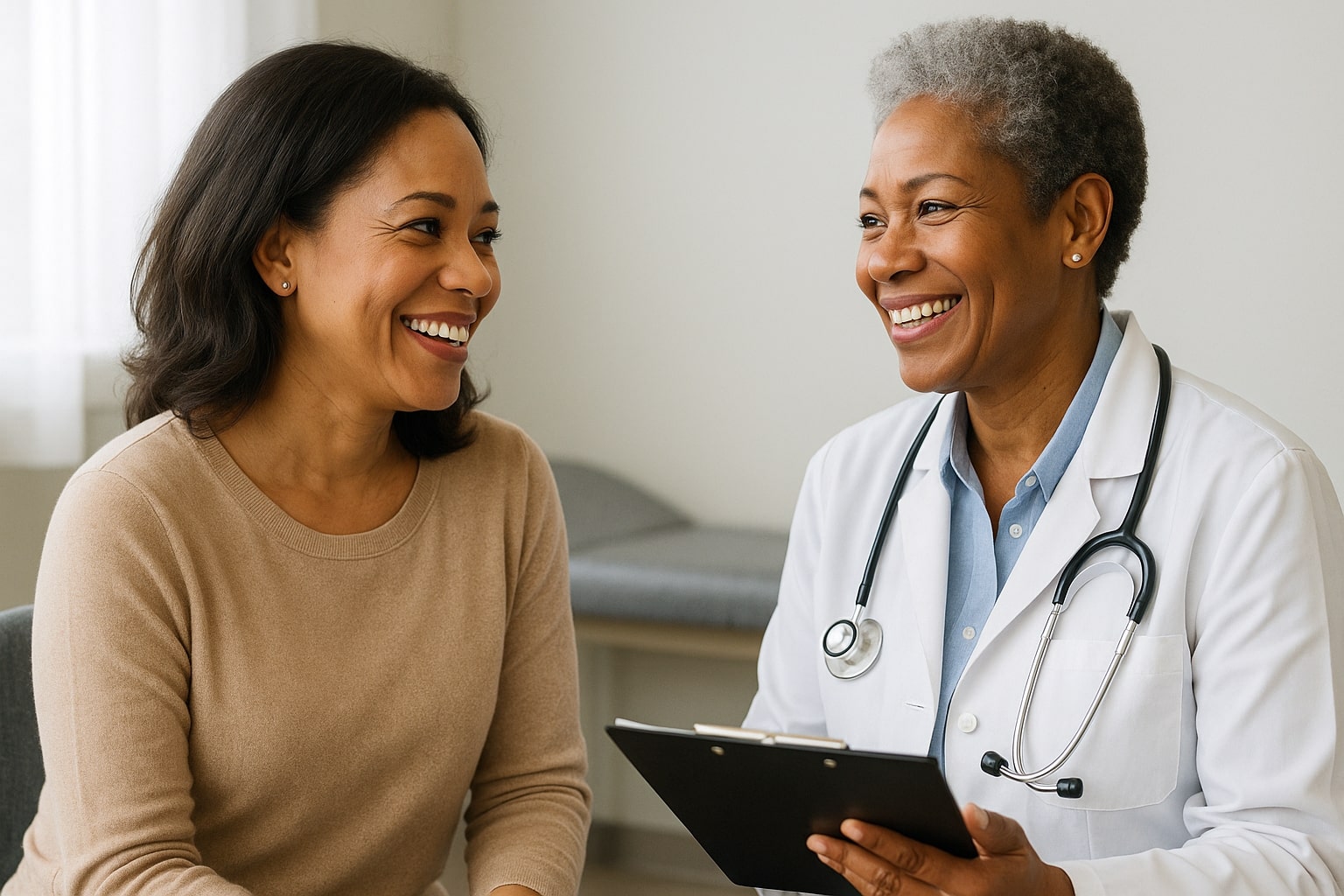Ovarian Cancer and Aging: What Women Over 50 Should Be Watching For

As women age, their health needs change, and certain risks become more prominent. Among them is ovarian cancer—one of the most challenging gynecologic cancers to detect early. Women over 50, especially those in postmenopausal years, are at higher risk, making awareness and timely screening essential.
Why Age Matters
The risk of developing ovarian cancer increases with age, particularly after menopause. Most cases are diagnosed in women over 50, with the average age of diagnosis being around 63. Hormonal changes, cumulative exposure to environmental factors, and genetic predispositions can all contribute to this heightened vulnerability. Additionally, women who have never been pregnant, have a family history of ovarian or breast cancer, or carry BRCA1 or BRCA2 gene mutations are at an increased risk.

Early Detection Is Challenging
Unlike breast or cervical cancer, ovarian cancer often presents with subtle or non-specific symptoms. There’s no reliable screening test for the general population, which is why it’s often referred to as a “silent” disease. The ovaries are deep within the abdomen, and symptoms are frequently mistaken for less serious gastrointestinal or urinary issues.

Common symptoms include:
- Bloating
- Pelvic or abdominal pain
- Feeling full quickly while eating
- Frequent or urgent urination
- Changes in bowel habits
Because these symptoms are common in many benign conditions, women often dismiss them or wait too long to seek help. Persistent or worsening symptoms should always prompt medical attention.
Key Signs Women Over 50 Shouldn’t Ignore
It’s important not to chalk up persistent abdominal discomfort or unusual changes as “just part of getting older.” Awareness is the first step in protecting your health. If symptoms last more than two weeks or become progressively worse, consult a healthcare provider. The earlier ovarian cancer is detected, the better the chances for successful treatment.
For a more detailed breakdown of the signs of ovarian cancer, Moffitt Cancer Center offers a comprehensive overview that can help women understand what to look for and when to seek medical advice.
Talking to Your Doctor
Women over 50 should make it a habit to discuss their full family medical history with their healthcare provider. If there’s a strong familial link to ovarian or breast cancer, genetic counseling and testing might be recommended. For those with an elevated risk, transvaginal ultrasound or CA-125 blood testing may be used as part of a more personalized monitoring strategy.
Prioritizing Health Through Lifestyle
Not every case of ovarian cancer can be prevented, but certain lifestyle choices may help decrease the risk. Keeping a healthy weight, engaging in regular physical activity, consuming a balanced diet, and steering clear of tobacco products all promote general health. Some research indicates that prolonged use of oral contraceptives might also reduce the risk of ovarian cancer, although this decision is best made in consultation with a healthcare provider.
Conclusion
For women over 50, vigilance is key. Listening to your body, understanding risk factors, and seeking regular medical advice can make all the difference. By staying informed and proactive, women can improve their chances of catching potential problems early—when they’re most treatable.
